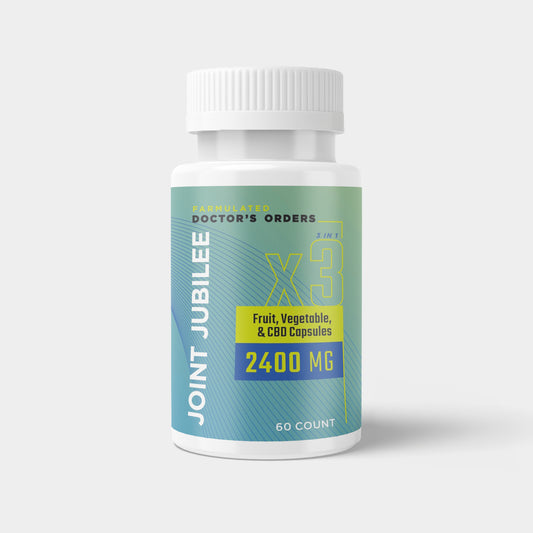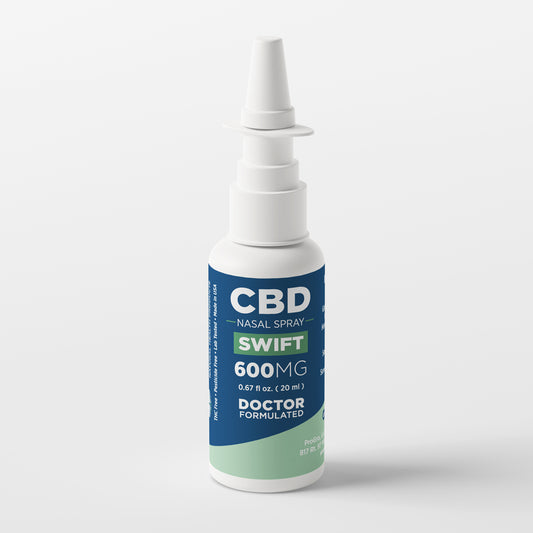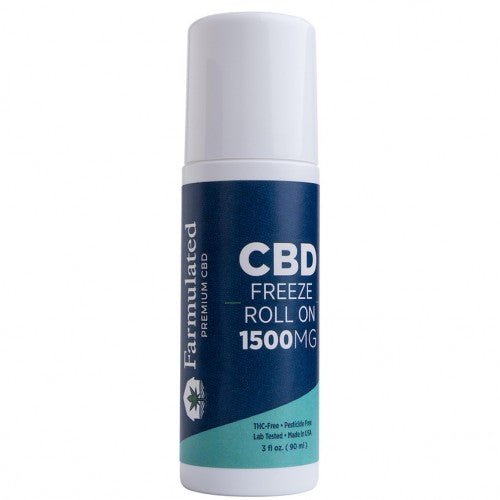Living with Irritable Bowel Syndrome (IBS) can be a daily struggle characterized by persistent abdominal pain, bloating, and unpredictable bowel habits. For many, traditional treatments offer limited relief, leading them to seek alternative solutions. This article explores the scientific research on how CBD may help manage IBS symptoms.
Understanding IBS and Its Impact
What is Irritable Bowel Syndrome (IBS)?
Irritable Bowel Syndrome (IBS) is a prevalent functional gastrointestinal disorder impacting the large intestine. It is marked by a cluster of symptoms, including abdominal pain, bloating, and altered bowel habits such as diarrhea, constipation, or a combination of both. Unlike Inflammatory Bowel Disease (IBD), IBS does not result in changes to bowel tissue or elevate the risk of colorectal cancer.
IBS Symptoms
The symptoms of IBS can vary widely among individuals but often include:
- Abdominal Pain: Cramping or discomfort in the lower abdominal area.
- Bloating: A sensation of fullness or swelling in the abdomen.
- Altered Bowel Habits: This can include diarrhea, constipation, or an alternating pattern of both.
- Gas: Excessive flatulence and burping.
Impact on Daily Life
IBS can significantly affect the quality of life. It often leads to missed workdays, reduced productivity, and social discomfort. The chronic nature of IBS symptoms can also contribute to anxiety and depression, creating a cycle of stress and symptom exacerbation.
The Science of CBD
What is CBD?
Cannabidiol (CBD) is a natural compound found in the cannabis plant. Unlike THC, another well-known cannabinoid, CBD does not produce psychoactive effects. It is extracted from the cannabis plant and processed into various forms, including oils, edibles, topicals, and CBD nasal spray, to be used for its potential therapeutic benefits.
How CBD Works in the Body
CBD interacts with the endocannabinoid system (ECS), a complex cell-signaling system involved in regulating a variety of functions, including pain, mood, appetite, and immune response. The ECS consists of endocannabinoids, receptors, and enzymes that work together to maintain homeostasis in the body. CBD may help modulate the activity of the ECS, potentially providing relief from various symptoms.
CBD for IBS: Mechanisms and Benefits
Clinical Endocannabinoid Deficiency
The hypothesis of Clinical Endocannabinoid Deficiency (CED) suggests that low levels of endocannabinoids in the body might contribute to the development of certain conditions, including IBS. By supplementing with cannabinoids like CBD, it may be possible to restore balance and alleviate symptoms.
CBD and Gut Motility
IBS often involves disrupted gut motility, leading to either slowed or accelerated bowel movements. Research indicates that CBD may influence gut motility by interacting with cannabinoid receptors in the gastrointestinal tract, potentially normalizing bowel movements and reducing symptoms like diarrhea and constipation.
Anti-Inflammatory Properties
Inflammation in the gut is a significant factor in IBS. CBD has been shown to have anti-inflammatory properties, which may help reduce gut inflammation and relieve associated symptoms. By decreasing inflammation, CBD might improve overall gut health and function.
Pain Relief
Chronic abdominal pain is a hallmark of IBS. CBD's potential analgesic (pain-relieving) properties could help manage this pain by interacting with receptors in the nervous system that regulate pain perception.
Scientific Research on CBD for IBS
Studies and Findings
Several studies have explored the effects of CBD on IBS and related symptoms. For example, a study published in the journal "Phytotherapy Research" found that CBD may reduce abdominal pain and improve the quality of life in individuals with IBS. Another study in "Gut" highlighted CBD's potential to modulate gut motility and inflammation.
Case Studies
Real-life examples provide compelling evidence of CBD's benefits for IBS patients. One case study involved a patient who experienced significant relief from chronic abdominal pain and bloating after using CBD oil regularly. These anecdotal reports support the growing body of scientific research.
Expert Opinions
Medical professionals and researchers are increasingly recognizing the potential of CBD in managing IBS symptoms. One study mentioned in The National Library of Medicine mentions that CBD may mitigate upper gastrointestinal dysfunction, such as nausea and vomiting.
Different Forms of CBD for IBS
CBD Oil for IBS
CBD oil is one of the most popular forms of CBD for managing IBS symptoms. It can be taken sublingually (under the tongue) for rapid absorption or mixed into food and beverages. CBD oil offers flexible dosing and is easy to incorporate into a daily routine.
CBD Isolate vs. Full-Spectrum CBD
CBD isolate contains only pure CBD, while full-spectrum CBD includes other cannabinoids, terpenes, and compounds found in the cannabis plant. Some patients prefer full-spectrum CBD for the "entourage effect," where multiple compounds work together for enhanced benefits. However, CBD isolate is a good option for those who want to avoid THC entirely.
Other CBD Products
In addition to oils, CBD is available in various forms, including edibles, capsules, and topicals. Edibles and capsules offer a convenient and discreet way to consume CBD, while topicals can be applied directly to the skin for localized relief.
Legal and Safety Considerations
Is CBD Legal?
The legal status of CBD varies by country and region. In the United States, CBD derived from hemp (containing less than 0.3% THC) is legal at the federal level. However, state laws may vary, so it is essential to check local regulations.
Safety and Side Effects
CBD is generally considered safe, but it can cause side effects in some individuals, including dry mouth, drowsiness, and changes in appetite. It is crucial to start with a low dose and gradually increase as needed, and to consult with a healthcare provider, especially if taking other medications.
How to Use CBD for IBS
Dosage Recommendations
Determining the appropriate CBD dosage for IBS can be difficult, as it depends on factors such as an individual's weight, metabolism, and symptom severity. Starting with a low dose and gradually increasing it until the desired effects are reached is advisable. Seeking advice from a healthcare provider can offer personalized guidance.
Consulting Healthcare Providers
Before starting any new supplement, including CBD, it is important for IBS patients to consult with their healthcare provider. This ensures that CBD is a safe and appropriate option for their specific condition and helps prevent potential drug interactions.
Tips for Effective Use
To get the most out of CBD, it is important to use it consistently and as part of a comprehensive approach to managing IBS. This may include dietary changes, stress management, and other lifestyle modifications. Keeping a symptom diary can help track the effectiveness of CBD and make necessary adjustments.
Comparison with Traditional IBS Treatments
Conventional Treatments
Traditional treatments for IBS include medications such as antispasmodics, laxatives, and anti-diarrheal drugs, as well as dietary modifications and psychological therapies. While these treatments can be effective, they often come with side effects and may not work for everyone.
Benefits of CBD Over Traditional Treatments
CBD offers a natural alternative that may provide relief without the harsh side effects associated with some conventional treatments. Its potential to address multiple symptoms of IBS, such as pain, inflammation, and altered bowel habits, makes it a promising option for many patients.
Integrative Approach
For best results, CBD can be used alongside traditional treatments in an integrative approach. Combining CBD with other therapies under the guidance of a healthcare provider may offer enhanced symptom management and improved quality of life.
Future of CBD in IBS Treatment
Ongoing Research
The field of CBD research is rapidly evolving, with new studies continually emerging. Upcoming research may provide deeper insights into how CBD can be used to manage IBS and other functional gastrointestinal disorders more effectively.
Innovations in CBD Products
Innovation in CBD products continues to advance, with new formulations and delivery methods being developed. These innovations aim to improve bioavailability and patient convenience, making CBD even more accessible and effective for managing IBS symptoms.
Market Trends
The CBD market is expected to grow significantly in the coming years, driven by increasing consumer awareness and demand for natural health solutions. This growth is likely to result in a wider variety of high-quality CBD products tailored to the needs of IBS patients.
Conclusion
CBD offers a promising alternative for managing IBS symptoms, with a growing body of scientific research supporting its potential benefits. As the market continues to expand and new products are developed, IBS patients have more options than ever to explore CBD as part of their treatment regimen. Farmulated is committed to providing high-quality CBD products and supporting ongoing research to help individuals find relief and improve their quality of life.





